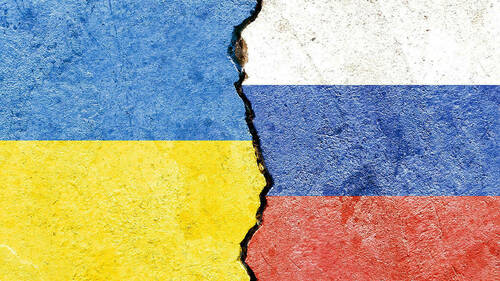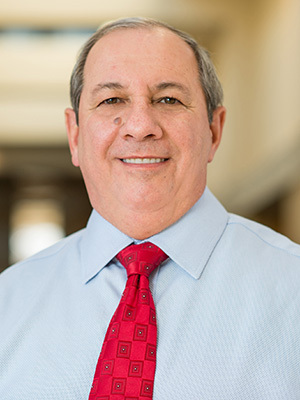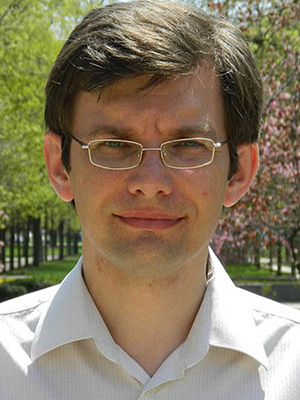
On Thursday (Feb. 24), Russian President Vladimir Putin declared war on Ukraine in a pre-dawn televised address, as his troops launched a three-sided attack by land, sea and air. Ukraine’s leadership said at least 40 people had been killed so far in the biggest attack on a European state since World War II.
Alluding to his nuclear arsenal, Putin warned other countries that any attempt to interfere would lead to “consequences you have never seen.”
As the world comes to terms with the attack on Ukraine and attention turns to how the international community will respond, University of Notre Dame experts weigh in on the invasion from varying perspectives:
International law

“President Putin has now ordered the most serious violation of international law in Europe since World War II,” said Mary Ellen O’Connell, the Robert and Marion Short Professor of Law and research professor of international dispute resolution.
O’Connell, an author in “The Crisis in Ukraine,” editor of the book “What is War?” and former professional military educator for the U.S. Department of Defense, says Putin and his leadership are criminally responsible for the deaths and destruction that are occurring as Ukraine attempts to defend its existence as an independent state. She said other states in the world have obligations to support Ukraine and the rule of law, though there is no obligation to join Ukraine in fighting Russia.
“There is an obligation to do everything short of that step,” O’Connell said. “All diplomatic, trade and commercial ties should be cut. This is a duty for all, including China. An Emergency Special Session of the United Nations General Assembly should be called to coordinate the worldwide response and make clear that the vast majority of states stand with Ukraine. Support for its people who are fleeing for safety to neighboring countries needs to be offered. If necessary, Ukraine’s government should be offered a safe haven to continue to operate in opposition to Russia’s attempted seizure. International negotiators need to press the advantage of a united world imposing financial hardship on Russia.”
Financial markets

Peter Kelly, assistant professor of finance at Notre Dame’s Mendoza College of Business, said we can look to history to help understand market uncertainty.
“During the Great Recession, panic ensued when Lehman collapsed — investors didn’t know who had exposure, direct or indirect,” he said. “Just like the banks were very interconnected, Russia is very interconnected with firms throughout the world. The consequences of Russia being cut off from the global financial system are unclear, and this uncertainty could prove disastrous.”
Kelly also noted that the uncertainty that comes with war plays a big role in investing.
“It is well-documented in the psychology literature that if an individual doesn’t feel competent at analyzing a situation, they will be ambiguity averse,” he said. “If investors don’t feel competent at analyzing the impact of the Russian invasion — and many investors may have already been negatively surprised by Russia’s actions — they may rush to safe assets that aren’t information sensitive like T-bills.”
Existing academic research shows that expected returns increase dramatically during financial crises, but do not seem to change nearly as much during war, he added.
“Therefore, if this war resembles wars of the past, it is not obvious that we should expect depressed asset prices offering high expected returns.”

Susanne Wengle, the Nancy R. Dreux associate professor of political science and concurrent associate professor in the Keough School of Global Affairs, who focuses on comparative and international political economy, post-Soviet transitions and food and agricultural systems, notes that Europe and developing countries will likely suffer the most due to price hikes resulting from the Russian invasion of Ukraine.
“Russia’s economy is important for the global market as an exporter of hydrocarbons and agricultural commodities, oil, gas and wheat, mainly. Russia is the world’s largest exporter of gas and of wheat. Energy and food prices are likely to raise. Both are foundational to developing countries, and have the potential to cause domestic unrest. A drought in Russia in 2010 contributed to rising food prices in Egypt, which contributed to popular discontent,” Wengle said. “The U.S. will be less affected than European and other economies across the world, as it is not energy- nor food-dependent on Russia. Since geopolitics have deteriorated after 2014’s annexation, there is far less U.S. investment in Russia now than there was prior to 2014. The U.S. is likely to be only indirectly affected, as rising global prices for energy hurts U.S. consumers and producers.”
Europe has far more leverage over the Russian economy than the U.S., Wengle noted.
“That is why Biden’s efforts to work with European allies is critical. Germany and the U.K. are the key players, because of energy and financial markets. Olaf Scholz of Germany has switched course from Angela Merkel’s, given recent events, and halted Nord Stream 2.”
She emphasized that the U.K. is critical because many Russian firms are heavily dependent on U.K. financial markets. “And, Russian oligarchs hold assets in the U.K. and Europe more generally.”
Sanctions

George Lopez, the Rev. Theodore M. Hesburgh, C.S.C., Professor Emeritus of Peace Studies, said leading up to the invasion, due to “Putin’s singular determination,” sanctions as a deterrent did not work.
“Now, sanctions as a crippling force on Russian resources at all levels is the main line of response, and we probably need to consider full trade sanctions, travel sanctions and diplomatic restrictions, etc.,” he emphasized. “How to fully isolate the Putin voice globally is a goal.”
In addition, with the deployment of tens of thousands of Russian troops, Lopez noted, Putin has also taken over Belarus without firing a shot.
Now that the invasion has officially occurred, the international community must step up, he said.
“We should also state clearly new red lines: Ukraine as a war-torn nation is now a major candidate for humanitarian aid — but when and how will the global community gain access, deliver supplies, etc.?” he pondered. “We should also state that all officials of Ukraine are off limits for arrest and worse; that despite blatant disregard for international law, we and other nations will hold Russian leadership and individual commanders of invading units responsible for violations of international humanitarian law.”
In response to potential energy price spikes, Lopez suggested focusing on Iran.
“Oddly enough the best response of the U.S. would be to conclude the talks with Iran and drop sanctions on Iranian oil so that the oil price market might be more stable.”
A ‘highly revisionist history’

Ian Johnson, the P. J. Moran Family Assistant Professor of Military History and an expert on Russian foreign relations and military technology, said that Putin is attempting to justify the invasion by delivering a “highly revisionist historical account of Russia and its near abroad.”
“In defending his military invasion of eastern Ukraine, Putin is relying on his own version of the historical record, combining real historical scholarship with myths and fictions,” Johnson said. “On Feb. 21, Putin suggested that Lenin was the ‘author and architect’ of modern Ukraine. As he has done frequently since 2014, Putin justified Russia’s aggressive foreign policy with historical claims, in his words, ‘confirmed by archive documents.’”
Putin’s invasion also means he has abandoned a two-decades-long strategy to achieve Russian strategic interests cheaply and at relatively little cost, added Johnson, the author of “Faustian Bargain: The Soviet-German Partnership and the Origins of the Second World War.”
“If history is any guide, even facing limited resistance, it will prove costly and lengthy for Putin to achieve his self-stated goals: the ‘demilitarisation and denazification of Ukraine,’ which presumably means the creation of a friendly puppet state,” he said.
Putin’s bloodiest international intervention to date — the 2014 invasion and occupation of Crimea — cost the lives of a few hundred Russian soldiers at most. In invading Ukraine, he has taken on far greater risk and costs, Johnson added.
“The death toll in military and civilian lives could very well reach the tens of thousands. The political and economic costs will likely be staggering, too,” he said. “In violating numerous treaties on the status of Ukraine, including the recent Minsk agreements, and launching what appears to be the first major war of territorial aggrandizement in Europe since 1939, Putin risks turning the Russian Federation into an international pariah.”
‘The barbarian invasion’

“The unprovoked and completely unjustified aggression of Russia against Ukraine has begun. Putin has chosen the path of inflicting human suffering and destroying human lives. The Ukrainian armed forces do their best to resist the barbarian invasion,” said Taras Dobko, a visiting scholar at the Nanovic Institute for European Studies at the Keough School of Global Affairs, and an associate professor of philosophy and senior vice-rector of the Ukrainian Catholic University in Lviv, Ukraine. “The West should demonstrate that Putin will pay the highest imaginable price for his aggression against a peaceful sovereign country.”
To view today’s Nanovic Institute flash panel featuring some of these experts and other Notre Dame experts, click here.


